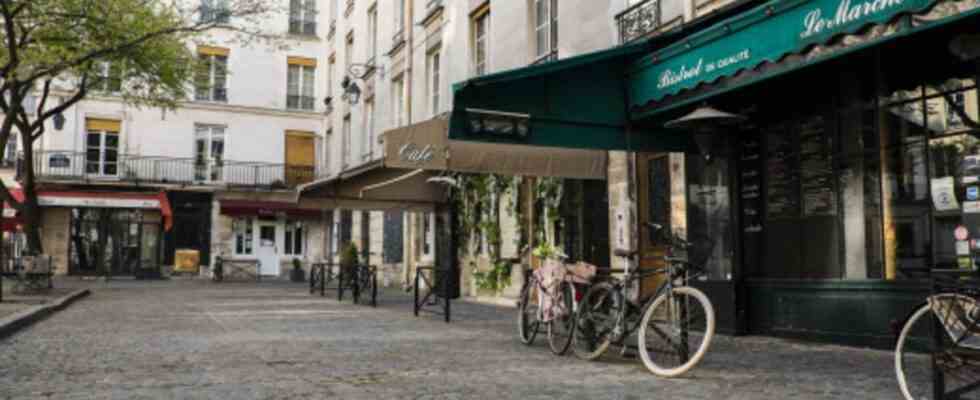End of wearing a mask outdoors and indoors, of the vaccination pass, curfews and confinements… The Covid-19 epidemic seems to be at an end, at least in terms of health measures. This Monday, the state of health emergency allowing restrictions to be imposed by decree in order to fight the coronavirus pandemic ends, after having been extended three times since March 20, 2020, three days after the start of the first confinement. in France.
Since March 14 already, a wind of freedom has been blowing on the territory. On this date, the French were no longer subject to the vaccination pass to enter places of leisure and culture, and the mask was no longer compulsory, except in transport. A few months later, on May 16, the last measure in force was lifted. From now on, they can no longer be imposed on the French via the Prime Minister. It will be necessary to go through Parliament to pass a restriction.
End of exceptional measures
The health bill adopted by Parliament last Tuesday formally repeals, as of August 1, the part of the Public Health Code relating to the state of health emergency. ” As of August 1, the government will no longer be able to take coercive measures authorized by the regime for exiting the state of health emergency, in the event of a particularly marked epidemic resumption. »thus assured the deputy (Renaissance) Sacha Houlié, in the law commission, Wednesday July 6th.
“In the event of a health crisis in the future, if the government needs exceptional powers, it will have to negotiate them one by one with Parliament”, insisted the rapporteur LR Philippe Bas, Tuesday July 26.
The daily life constraint measures provided for by the exceptional regimes – health pass, obligation to wear a mask, confinement, curfew, gauges, etc. – can therefore no longer be restored so easily.
Drug tests are not going away completely
Imposing screening tests on entering and leaving the territory will always be possible, but more complicated. If the Prime Minister can always order it by decree, she will nevertheless have to do so on the basis of a report from the Ministry of Health. She will also have to wait for the“ opinion of the competent scientific authority ».
For overseas territories, the same possibility is provided, this time in the event of a risk of hospital saturation. Local executives and elected parliamentarians in the community concerned should, however, be consulted.
These provisions, taken after the opinion of the High Authority for Health, can only be put into force by decree for two months, and beyond that, subject to a vote by Parliament.
Farewell to the Scientific Council
The Scientific Council is also about to bow out. Born on March 10, 2020, at the request of Emmanuel Macron, this ad hoc committee of around ten scientists, chaired by Professor Jean-François Delfraissy, came off the stage on Sunday. For two years and four months, accompanied by “more than 300 meetings” and multiple interventions in the media, its members issued advice, in particular nearly 90 opinions or notes on the health situation and the means of countering epidemic waves.
Infectiologists, epidemiologists, caregivers, specialists in the human sciences (anthropologist, sociologist), reinforced after a few months by six other experts (geriatrician, veterinarian, child psychiatrist, etc.) carried out a delicate and sometimes controversial exercise, between science, pedagogy, and health management.
An empty place which will be replaced by a “commando”, a committee “independent, transparent in its opinions and extremely reactive”, explained the Minister of Health, François Braun, Wednesday July 27 on franceinfo. According to the minister, it will take the form of a “commando team of very high-level scientists”.
And for caregivers?
The end of the state of health emergency could have been accompanied by the reintegration of non-vaccinated caregivers. However, the question is not on the menu. “It is not topical and it is not the subject of this text”, swept François Braun on July 5th. With the health bill, the Senate has “created a path towards the reintegration” of suspended personnel, in the words of its rapporteur.
But according to the text, the vaccination obligation for caregivers will be suspended only when the High Authority for Health (HAS) deems that it is no longer justified. Unvaccinated caregivers will then be “immediately reinstated”. And it won’t be for tomorrow. The HAS took the lead on Friday July 22, saying it was “in favor of maintaining the obligation to vaccinate against Covid-19 for personnel working in health and medico-social establishments”.
“The vaccination obligation is included in article 12 of this law of August 5, but, unlike the state of health emergency, which is also there and ends on July 31, there is no scheduled deadline, explains to the World Jean-Paul Markus, professor of public law at the University of Paris-Saclay. The obligation can be repealed, but this is not provided for in the new law, so it remains in force. »

